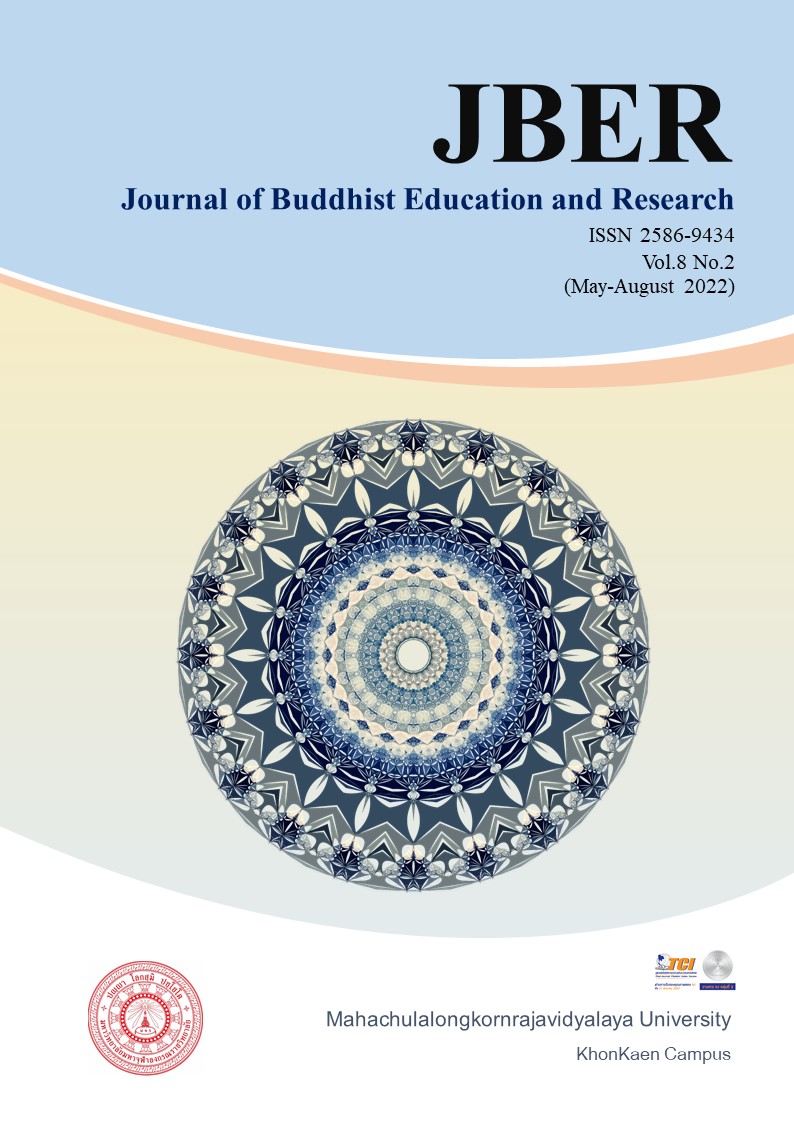AREA – BASED COLLABORATIVE EDUCATION MODEL FOR ENTREPRENEURSHIP DEVELOPMENT
Keywords:
Area-based approach, Entrepreneurship developmentAbstract
Title: Area-based approach of collaborative learning for entrepreneurship development in cities: Trat, Thailand.
The study was qualitative research. The objective of this research was to find out an area-based approach of collaborative learning for entrepreneurship development. The instruments used were exploratory studies as community, dominance, basic economy and population were used for job analysis, documentation analysis, studying of social phenomena: behaviors and situations and six groups of interview cases were included as a sample where in the special economic zone, Trat province.
The findings indicated that the programme offers education policy and collaboration in curriculum planning. The participants in this programme were directors, teachers, and stakeholders in the school community, government agencies, private organizations and community organizations to create a unity plan by the government that supports the budget through education policy. The organized activities are strategies to help learners get more understanding. The content objective is related to the key concept of entrepreneurship development inherited from cultural heritage based on the environment, economic, and social components of the community.
The programme consists of three learning parts: (1) practice entrepreneurship activities to inspire learners. (2) use collaborative learning to build learners' agency. (3) transfer of entrepreneurship education by educators need to be flexible in adapting the learning goals of a course to the practical needs of the community partner. In each part follow a five-step process for sustainable development as (1) basic (2) competence awareness (3) creative application (4) start up and (5) growth.
References
กระทรวงศึกษาธิการ. (2542). พระราชบัญญัติการศึกษาแห่งชาติ พุทธศักราช 2542. กรุงเทพฯ: บริษัท สยามสปอรต์ซินดิเคท จำกัด.
กระทรวงศึกษาธิการ. (2545). พระราชบัญญัติการศึกษาแห่งชาติ พุทธศักราช 2542 (ฉบับที่ 2) และที่แก้ไขเพิ่มเติม พุทธศักราช 2545. กรุงเทพฯ: บริษัทสยามสปอรต์ซินดิเคท จำกัด.
กระทรวงศึกษาธิการ. (2553). พระราชบัญญัติการศึกษาแห่งชาติ พุทธศักราช 2553 (ฉบับที่ 3). กรุงเทพฯ: บริษัท สยามสปอรต์ซินดิเคท จำกัด.
กระทรวงศึกษาธิการ. (2560). หลักสูตรการศึกษาปฐมวัย พุทธศักราช 2560. พิมพ์ครั้งที่ 1. กรุงเทพฯ : สำนักวิชาการและมาตรฐานการศึกษา สำนักงานคณะกรรมการศึกษาขั้นพื้นฐาน กระทรวงศึกษาธิการ.
กล้า ทองขาว. (2558). การจัดการศึกษาแบบยึดพื้นที่เป็นฐาน : แนวคิด แนวทาง และกรณีศึกษา. วารสารราชภัฏสุราษฎร์ธานี, 2(2), 23-40.
สำนักงานเลขาธิการสภาการศึกษา. (2561). รายงานวิจัย การจัดการศึกษาเพื่อพัฒนาความเป็นผู้ประกอบการ (Entrepreneurship Education). กรุงเทพฯ: พริกหวานกราฟฟิค.
Jones, M. R. and Karsten, H. (2008). GIDDENS’S STRUCTURATION THEORY AND INFORMATION SYSTEMS RESEARCH. MIS Quarterly., 32(1), 127-157.





